Chemistry

Educators and Parents, Sign Up for The Cheat Sheet
Weekly updates to help you use Science News Explores in the learning environment
Thank you for signing up!
There was a problem signing you up.
-
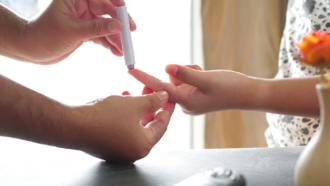 Health & Medicine
Health & MedicineNew patch might replace some finger-prick testing of blood sugar
A finalist at Regeneron ISEF created a wearable patch that turns yellow when someone’s blood-sugar level gets high enough to need an insulin shot.
-
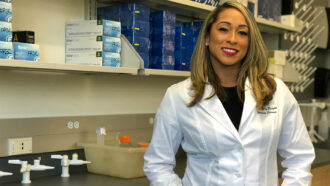 Chemistry
ChemistryThis forensic scientist is taking crime science out of the lab
Kelly Knight uses her past struggles and passion for forensics to inspire her students.
-
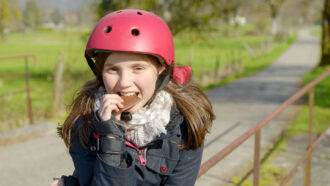 Chemistry
ChemistryExperiment: Keep your candy cool with the power of evaporation!
In this science project, use the energy produced when water evaporates to cool down chocolate-covered candy so it doesn't melt.
-
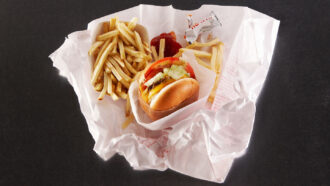 Chemistry
ChemistryScientists Say: PFAS
Non-stick coatings, stain-resistant cloth and other common materials leach long-lived PFAS into soil and water.
-
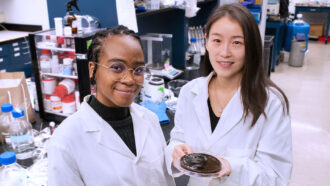 Tech
TechA new solar-powered gel purifies water in a flash
The unusual, fruit-inspired structure of this material provides quick filtration that could satisfy people's daily water needs.
-
 Chemistry
ChemistryChemists have unlocked the secrets of long-lasting Roman concrete
By searching ancient texts and ruins, scientists found a concrete recipe that could make buildings stronger — and help address climate change.
-
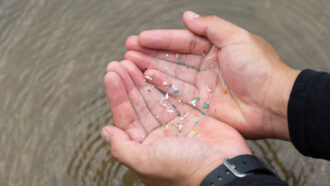 Environment
EnvironmentSea life may suffer as plastic bits alter metals in water
This interplay between plastics and metals could affect how each affects the environment — and suggests opportunities for controlling their risks.
-
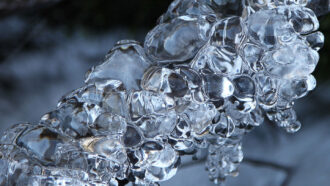 Materials Science
Materials ScienceLet’s learn about the weird science of ice
Better understanding of ice could lead to new deicing materials or even, someday, weather control.
-
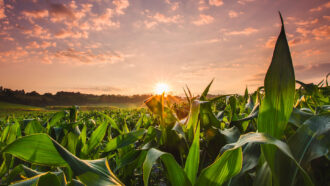 Chemistry
ChemistryScientists Say: Rubisco
Rubisco is a key protein in the process of photosynthesis, which feeds plants — and, in turn, us.
-
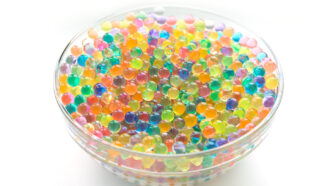 Materials Science
Materials ScienceScientists Say: Hydrogel
Tangled polymer chains help hydrogels hold their shape despite being full of water.
-
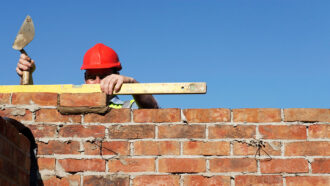 Environment
EnvironmentFor a better brick, just add poop
Sewage sludge. Cow dung. They’re not just waste — scientists are finding uses for processed poop in construction materials.
By Laura Allen -
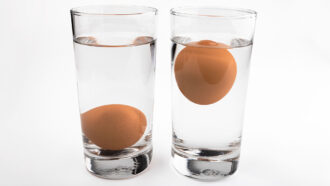 Physics
PhysicsHow salty does the sea have to be for an egg to float?
Some objects float on top of the ocean, and other objects sink to the bottom. Why? Try this eggs-periment to find out!